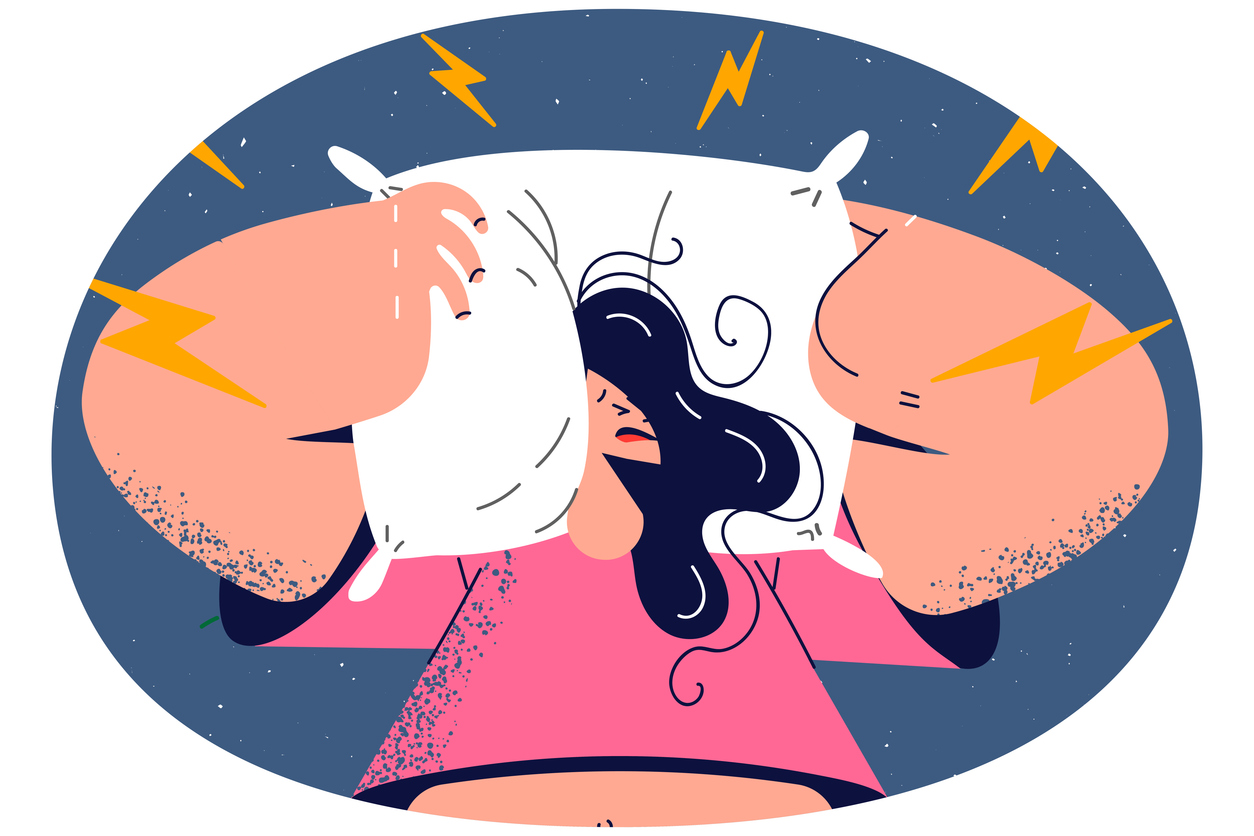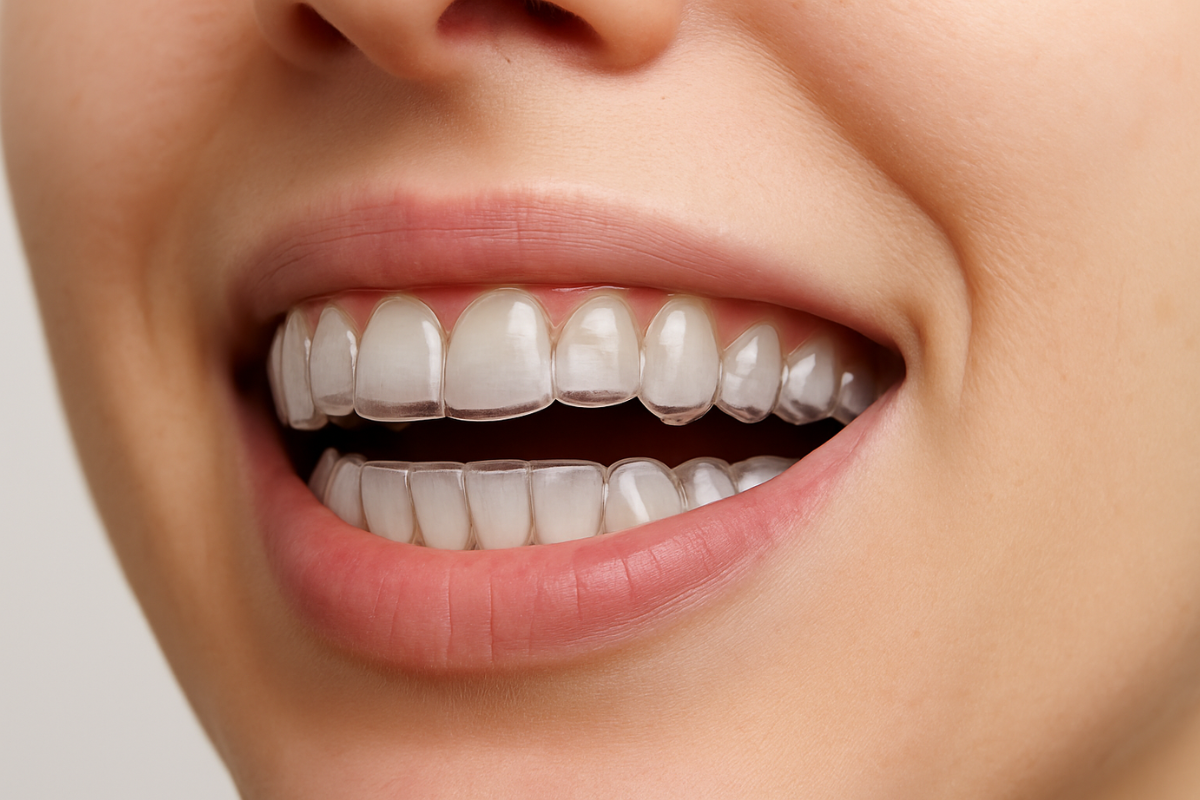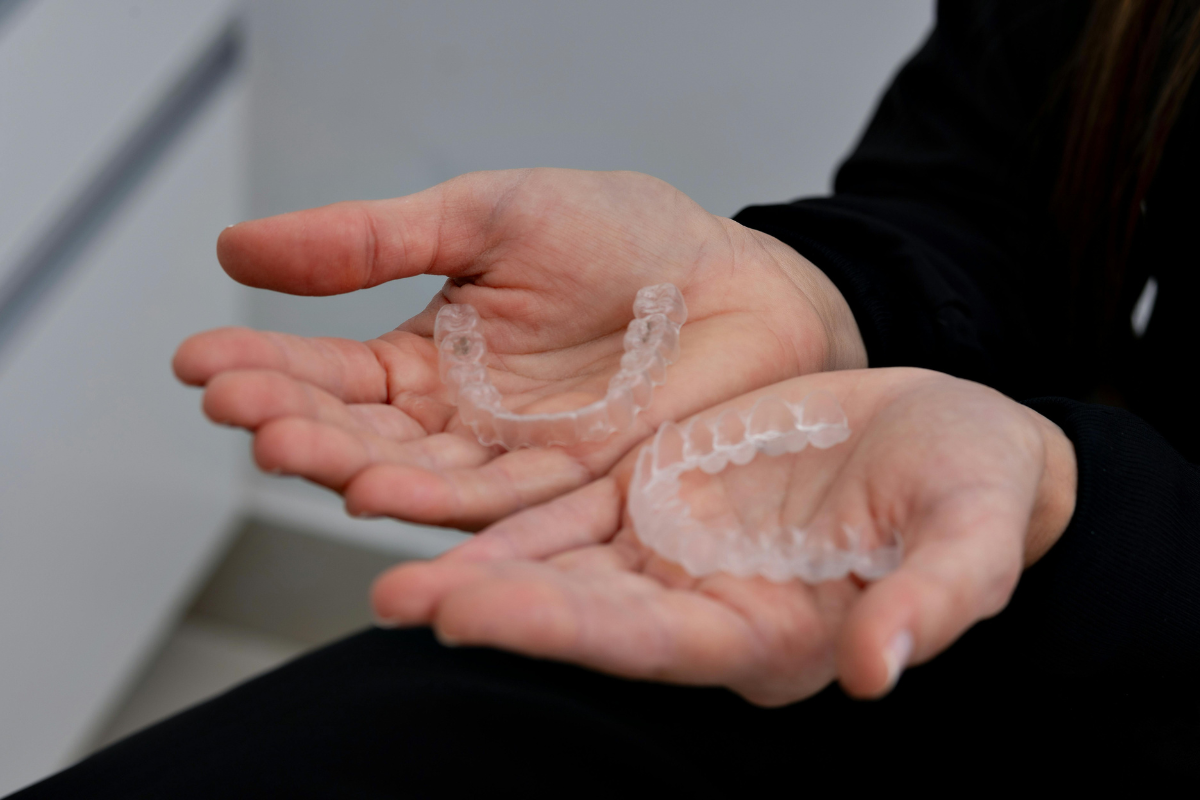News From The House
Your go-to guide to all things happening at The House of Smile Design – from personal smile design stories to dental advice, trends and common questions answered by our experts.

Teeth Grinding – Symptoms, Causes, Effects, and Treatments
| Published Date: | 18 March 2025 |
| Category: | Dental Checkups |
Teeth grinding, also known as bruxism, is a common issue. It happens when someone clenches or grinds their teeth, often without being aware of it. Grinding your teeth now and then may not seem like a big deal. But if bruxism continues or becomes severe, it can lead to serious dental and health issues. It can occur when you’re awake or asleep. Many people only find out about the issue after they notice damage or feel discomfort.
Ignoring teeth grinding can lead to worn teeth, jaw issues, and sleep problems. Knowing the symptoms, causes, and effects helps you get the right treatment. This way, you can prevent serious damage. This article looks at bruxism and. It covers how to spot its symptoms, possible causes, and effects on oral health. It explains when to see a dentist and talks about treatment options, such as digital smile design.
What is tooth grinding?
Teeth grinding, or bruxism, is an unconscious habit. People grind, clench, or gnash their teeth without realising it. It can happen when you’re awake, often because of stress or focus. It can also occur during sleep, which is tougher to manage. Sleep bruxism is linked to sleep disorders and can be severe enough to wake a bed partner.
The force used in grinding can be much stronger than normal chewing, which. This can cause too much wear and damage to teeth. In severe cases, it can impact the jaw joint, lead to chronic headaches, and add to facial pain.
How do you know if you are grinding your teeth?
Many people are unaware that they grind their teeth until symptoms become noticeable. Sleep bruxism happens without us knowing. Usually, a partner hears the noise first, or a dentist sees theodd wear on teeth. If you ignore these signs, it can affecthurt your dental health and overall well-being.
- Jaw pain or stiffness, especially in the morning, can mean you often clench or grind your teeth at night.
- Chipped, worn, or flattened teeth mean too much force is being used. This can cause structural damage.
- Tooth sensitivity can increase when enamel wears away, exposing the softer dentine below.
- Headaches near the temples often occur due to strain in the jaw muscles.
- Ear pain may occur without an infection. It can happen due to excess pressure in the temporomandibular joint.
- Clicking or popping sounds in your jaw when you chew or open your mouth. This might mean there are joint problems from grinding.
- Bruxism can cause sleep problems or make you wake up feeling tired.
What causes teeth grinding?
Bruxism is an unintentional habit of grinding teeth. Many factors can cause this. These include physical issues, psychological stress, and lifestyle choices. Some people grind their teeth from temporary stress. Others may have conditions that cause this habit. Identifying the cause is essential for effective treatment.
- Stress and anxiety can increase muscle tension, leading to unconscious clenching and grinding.
- Sleep problems like sleep apnea and snoring often relate to nighttime bruxism.
- Bite misalignment, or malocclusion, can make the jaw find a better position. This often leads to grinding.
- Certain medications, including antidepressants, have caused an increase in teeth grinding.
- Caffeine, alcohol, and smoking can stimulate muscle activity, increasing the likelihood of bruxism.
- Parkinson’s disease and Huntington’s disease can cause involuntary grinding.
How serious is this tooth grinding problem?
Ignoring bruxism can lead to severe dental complications and chronic pain. The excessive pressure placed on teeth and jaw structures can cause irreversible damage. It can also affect both function and appearance. Without intervention, the condition can worsen, leading to long-term health issues.
- Tooth damage is a big worry. Grinding wears down the enamel over time. This makes teeth more likely to fracture, chip, or decay.
- Excessive force can weaken the support structures around the teeth. This may lead to gum recession and loose teeth.
- Jaw pain and TMJ disorders happen when grinding stresses the jaw joint. This can cause discomfort and limit movement.
- Frequent headaches and facial pain often occur because of tired muscles. It may also happen due to strain on the temporomandibular joint.
- Sleep problems can harm your health. They can cause tiredness, trouble focusing, and a lower quality of life.
- Grinding can cause tooth sensitivity and nerve damage. This happens because it exposes the inner layers of teeth. As a result, you may feel pain when eating hot or cold foods.
When should I see a dentist?
Don’t ignore persistent teeth grinding. It can lead to pain or visible damage to your teeth. A dentist can check how bad bruxism is. Going further, find possible causes and suggest helpful solutions too. Regular dental check-ups are essential for spotting early signs before significant damage occurs.
If you have regular jaw pain, headaches, or worn teeth, see a professional without delay. If bruxism links to sleep problems, a dentist might collaborate with a sleep expert. Together, they can tackle the main issues.
Treatment options for teeth grinding.
Managing bruxism requires a combination of dental treatments and lifestyle adjustments. The best approach depends on how severe the condition is and what might cause it. Early intervention can prevent further damage and provide relief from discomfort.
- Custom night guards, made by dentists, protect teeth from grinding while you sleep. They reduce wear and help prevent fractures.
- Stress management techniques can work. Such as mindfulness, meditation, and therapy, which can reduce stress and anxiety.
- Orthodontic treatments can help fix bite misalignment. They also lower the risk of bruxism.
- Botox injections can relax overactive jaw muscles. This is helpful in severe cases when other treatments do not work.
- Digital Smile Design (DSD) provides a new way to fix damaged teeth. They use advanced imaging and create personalised treatment plans. This technology ensures precise restorations that enhance both function and aesthetics.
How do we restore smiles at the House of Smile Design?
Teeth grinding can wear down your teeth, affecting both function and appearance. At House of Smile Design, we aim to restore strength, comfort, and confidence. We do this with personalised treatments. Every smile is unique. Our method ensures that we fix your teeth with care so they will last.
- Custom-fit porcelain veneers cover worn surfaces. They restore a natural and flawless appearance.
- Clear aligner treatment straightens teeth and fixes bite problems that can cause grinding.
- Porcelain crowns and bridges restore teeth that have suffered severe damage. They offer strength and a natural appearance.
- Composite fillings repair minor chips and smooth rough edges for an even bite.
- Bite correction treatment realigns the jaw to reduce pressure and minimise further grinding.
- Bite splint therapy provides a protective barrier. It stops further wear and eases jaw pain.
Our Digital Smile Design technology helps us plan your treatment with accuracy. You can see a preview of your future smile before we start. Whether your teeth need minor adjustments or major changes doesn’t matter. Our team customises each step for the best results.
The final note
Teeth grinding may seem like a minor issue, but its long-term effects can be serious if left untreated. Getting professional help is essential for protecting your oral health. Whether grinding comes from stress or an underlying condition. Custom night guards, bite correction, and digital smile design can prevent further damage. It also restores a confident smile.
Think you might be grinding your teeth? Visit the House of Smile Design today. Get a full check-up and a treatment plan for you.
Similar Articles
Affiliates











Follow @thehouseofsmiledesign


Aesthetic Function Structure Biology


Copyright 2026 HoSD | All rights reserved


